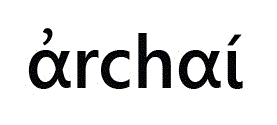Abstract:
The aim of this paper is to examine the implications of Plato’s use of the term stoicheion, since his awareness of stoicheion’s polysemy reveals his view of the origin, the complexity and, at the same time, the order of reality. Moreover, his use of stoicheion allowed him both to inherit and to detach himself from his predecessors. I begin by presenting the history of the notion of stoicheion; then, since one of the meanings of stoicheion is ‘letter of the alphabet’, I focus on the Cratylus, which contains the first of several passages where Plato employs the alphabet as a paradigm for the structure of a complex system. Finally, I turn to the Theaetetus, where Plato, for the first time, uses stoicheion in the sense of ‘element’ and where, through the relation letters/syllables, Plato clarifies that enumeration and juxtaposition are not sufficient to attain the real knowledge. I will argue that only thanks to these steps can we understand the occurrences of stoicheion in the Timaeus, where Plato first states that air, earth, fire and water are not stoicheia tou pantos, and then reveals that, instead, the basic triangles are ‘the elements of the universe’.
Keywords:
Plato; Element; Letter;
Timaeus
;
Theaetetus
;
Cratylus
